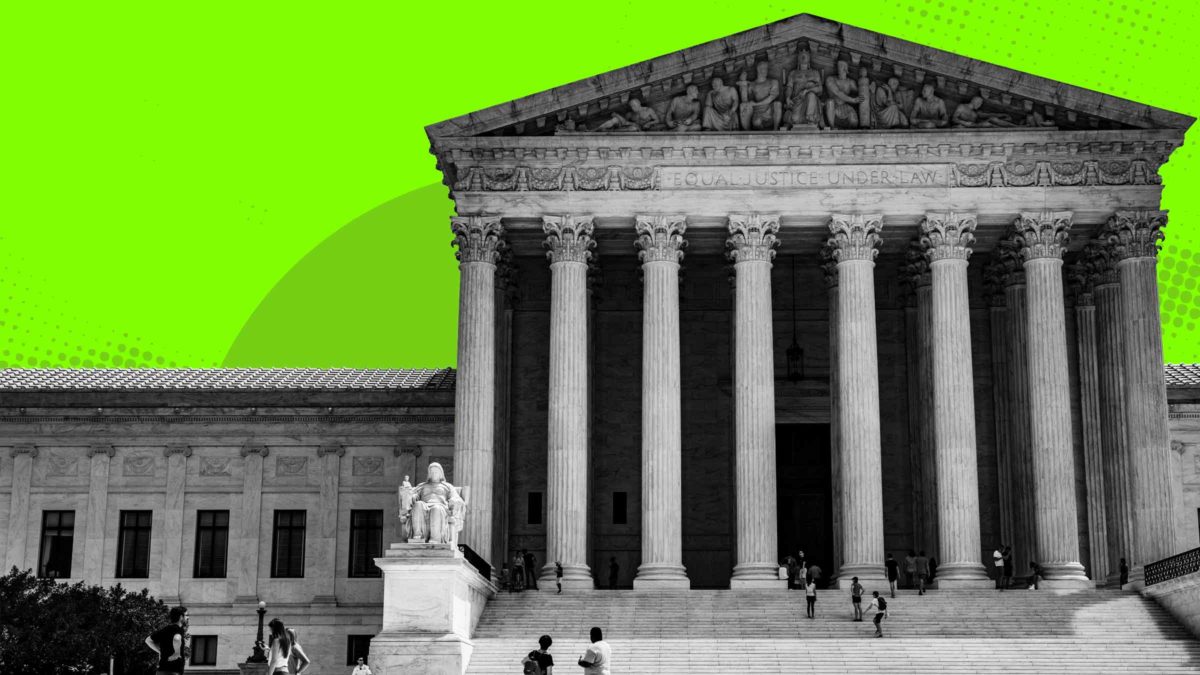In 1892, the state of Louisiana convicted, fined, and jailed Homer Plessy for the crime of sitting his 87.5 percent white self in a 100 percent whites-only train car. Four years later, in the infamous Supreme Court decision that bears his name, Plessy v. Ferguson, eight white justices eventually decided that the U.S. Constitution’s guarantee of “equal protection of the laws” was powerless to protect him from this result.
Earlier this month, though, Plessy’s name was finally cleared of wrongdoing. Louisiana Governor John Bel Edwards signed the first pardon issued under a 2006 state law that extends clemency to people convicted under the state’s (many, many) intentionally discriminatory laws. Homer Plessy’s pardon was ceremoniously accepted by his cousin’s great-great-grandson because, well, Homer Plessy has been dead for 97 years.
Although this pardon is perhaps a nice way to honor the dead, it underscores the shocking inadequacy of our legal system at offering justice to the living. Pardoning Plessy is a feel-good gesture that doesn’t do anything for him, or for anyone else victimized by legal racism past or present. And while “it’s the thought that counts” is an appropriate sentiment for Christmas gifts with a return receipt, the same cannot be said for matters of law and justice.
In Plessy, the Court was asked to determine whether Louisiana’s law requiring separate train cars for separate races conflicted with the Thirteenth and Fourteenth Amendments to the U.S. Constitution. Homer Plessy had a single Black great-grandparent and could have passed for white. (That’s one out of eight drops of Black-people-blood, and yes, the law at issue was so racist that its implementation required math.) But Plessy was part of an anti-segregation activist group that wanted to challenge the law. So after boarding the white-only car, he alerted the conductor that he was incognegro: “I have to tell you that according to Louisiana law, I am a colored man,” he reportedly said. Plessy was promptly hauled off the train and into jail.
Plessy and his fellow activists presented what should seem like a fairly straightforward legal question: “Can this racist state law coexist with our new antiracist federal law?” The post-Civil War amendments are arguably the most radical steps Congress has ever taken to foster a multiracial society, both (theoretically) making Black people citizens and preempting state laws designed to enforce second-class citizenship. But when confronted with this fact, the Supreme Court channeled Arthur’s D.W. and declared itself unable to read the directive clearly established by Congress. The opinion, which asserted that “if one race be inferior to the other socially, the Constitution of the United States cannot put them upon the same plane,” gave rise to the “separate but equal” doctrine that justified decades of Jim Crow segregation. This would remain the law of the land until the Supreme Court ruled segregated schools unconstitutional in Brown v. Board of Education in 1954. Forget about the pardon—Plessy did not even live to see his pernicious namesake overruled.

Monroe Elementary School in Topeka, Kansas, where the legal challenges to segregation that ended with Brown v. Board began (Photo by Mark Reinstein/Corbis via Getty Images)
The Orleans Parish District Attorney who requested the posthumous pardon, DA Jason Williams, tacitly acknowledged that the pardon wasn’t really for Plessy but for the state that punished him for his Black ancestry. “It was important that the office that prosecuted Homer Plessy be the office that asked for his name to be pardoned.” Williams said, “I submitted it asking for us to be forgiven—the institution.” But who is doing the forgiving here, really, and to what end? With a legal system that remains slow to fix its mistakes and quick to make new ones, the potential for meaningful forgiveness is limited. The people who have lived and continue to live with the consequences of judicially-enforced racism deserve more than the performance of penitence.
One way to move beyond pardons that simply assuage the government’s guilt would be granting pardons when it actually matters. Prisons are filled with Homer Plessys waiting to be pardoned for being at the wrong place at the wrong time with the wrong complexion—one in 81 Black adults nationwide, to be specific, are serving time in state prisons. Louisiana has the highest incarceration rate in the country, and almost no one who applies for a commutation actually receives one.
People in federal custody don’t fare any better. Across the country, over 18,000 (living!) people currently have clemency petitions awaiting review at the Department of Justice. And yet, not a single one of them received a federal pardon last year. Sitting on the pardon power is common for first-year presidents, but even so, that’s two fewer pardoned people than pardoned turkeys in a single year! And as far as I know, those overgrown chickens didn’t even file clemency petitions.
With a judiciary dominated by prison enthusiasts, the pardon power can be one of few meaningful checks on the legal system’s lust for incarceration. A study on state court diversity released last year found that only 7 percent of state high court justices are former public defenders. Former prosecutors, by contrast, hold over one-third of these seats. The federal judiciary, too, is a haven for people who spent their careers putting people in cages as opposed to keeping people out of them: There are about four former prosecutors for every public defender on the federal bench. There’s a powerful urge for these judges to reproduce the behaviors that served them as prosecutors, like taking it easy on cops and throwing the book at the low-income people of color they arrest.
Courts are made up of people, and it’s all too easy for people to fall back on their biases. The majority in Plessy did so and gave legal cover to extremism and bigotry. Homer Plessy deserved better than what the legal system gave him. The people experiencing the same racism and bigotry today shouldn’t have to wait three generations for makeshift justice.

